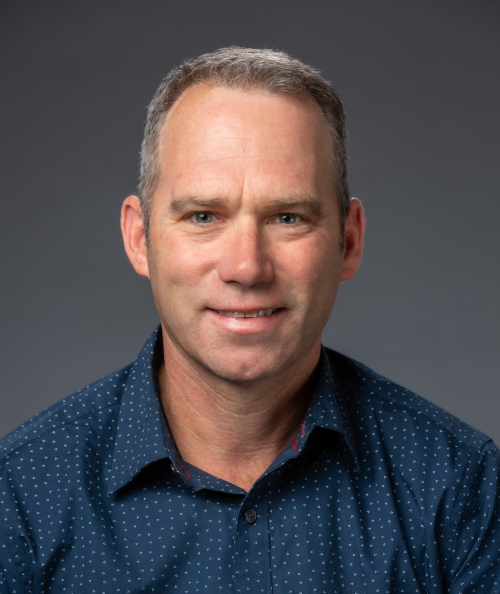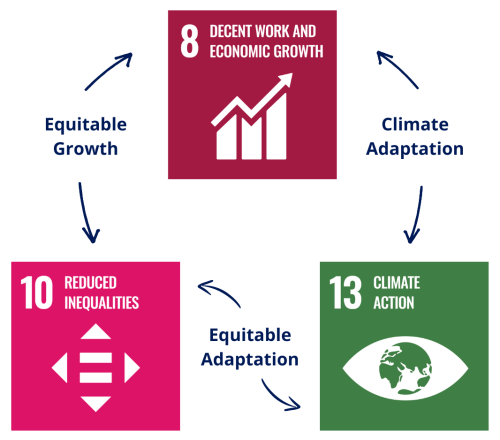
Directors’ letters in Annual Reports are traditionally a chronicle of accomplishment. Since I accepted the role of DCID director in 2020, mine have certainly adhered to this template. We boast about our organization’s achievements, recount our most auspicious statistics, and “shout out” the critical people who enabled our success. While DCID certainly has a lot to brag about; this year, I would like to buck tradition and focus on failure – a widespread, global failure that not only emphasizes the importance of DCID’s work but underscores how we set our goals and organize our efforts. With only six years remaining to reach the Sustainable Development Goals (SDGs), countries are only on track to achieve the targets and have regressed or stagnated on 35 percent of them.

At the beginning of this summer, a new UN report returned to the 17 and dozens of underlying indicators, providing a formal accounting in which targets were achieved assessing whether current trendlines would allow others to be accomplished on time.1 The assessment was best summarized by the UN Secretary-General, who declared, “..the world is getting a failing grade.” Less than one-fifth of the targets were on track to be met, moderate or marginal progress had been made on another 48 percent, efforts on 18 percent had stagnated, and on 17 percent of indicators, scores were actually regressing. When the stocktaking took place in 2022, 23 million people were newly pushed into extreme poverty, 100 million more people were suffering from hunger, while civilian deaths in conflict and global temperatures spiked to new highs since the 2017 start date.
Many smart analysts have weighed in on the failure, pointing to the long-term impact of COVID-19, gaps in development financing and international coordination, and recent spikes in international conflict. Less attention, however, has been given to how underlying tensions in the SDGs themselves impede progress. There are severe challenges in pursuing all SDGs simultaneously, because of the inherent trade-offs between goals. In an inspiring Keynote Lecture to the Strategic Management Society, Anita McGahan of the University of Toronto highlighted these by organizing the SDGs into three general baskets measuring: 1) economic growth; 2) inclusion and equality; and 3) environmental and climate preservation.

Policymakers might be able to design policies that achieve SDGs in two of these baskets at one time, but achieving all three in a single policy arena is extremely challenging if not impossible. Efforts might be made to achieve equitable growth (baskets 1 and 2) by pairing global integration efforts with generous redistributive policies. However, doing this with climate-compatible strategies raises the degree of difficulty by limiting the sets of industries and services that a country may wish to attract. Alternatively, policymakers might aim for climate adaptation (baskets 1 and 3), by providing tax incentives to green industries, however, these policies might unfairly benefit those with higher incomes and great technical skills. Finally, policymakers could attempt equitable adaptation (baskets 2 and 3) by incentivizing a transition to renewable energy sources that both slows global warming and reduce inequalities through new job opportunities. However, if these new energy sources are less efficient, they could reduce availability and increase prices, injuring the competitiveness of existing businesses.
Failure to make progress on SDGs is tragic, but as I poured over the data and commentary on the metrics, I became more optimistic, not less. DCID is well-poised to contribute to the SDG debates by shedding light on how these trade-offs can be best managed. When we reorganized our research and engagement focal areas two years ago, we understood how interrelated these grand global challenges were and we created a flexible structure to respond to them.
McGahan’s typology maps perfectly onto three out of DCID’s four research and engagement focus areas. Our research on Global Value Chains (GVCs) aims to promote economic integration and growth, as countries move up international value chains, creating jobs and producing more sophisticated goods and services. Our research on human development sheds light on how education, health, and empowerment policies can bridge economic and political divides, helping distribute the fruits of economic growth more evenly. Our research on climate and sustainability focuses on policies to mitigate and adapt to climatic and environmental change. In short, we are producing cutting-edge work on the three major pillars of sustainable development.
However, the answer to resolving trade-offs across these pillars is the final DCID research focus that does not have an analog in McGahan’s framework – economic governance. Our work in this space aims to help policymakers manage complex trade-offs by increasing the quality of information available to decision-makers, bringing more, diverse voices into the policy arena, and enshrining fairness by limiting biases caused by corruption. These efforts, best encapsulated by SDG #16 “Peace, justice, and strong institutions,” improve government responsiveness and legitimacy, enabling government officials to understand how different stakeholders are impacted by their decisions and facilitating complex, long-term agreements that undergird reforms. Strong governance institutions also will promote greater development financing through greater transparency and accountability mechanisms.
The re-organization is already bearing fruit. In the past year, DCID has raised over $3.5 million in grants and contracts to promote our rigorous research, leading to five academic articles and eight technical reports. Our work on anti-corruption was even highlighted in seminars at USAID’s Annual Learning and Evidence Month, which attracted hundreds of participants.
As we progress on these four critical areas and the trade-offs between them, DCID is also poised to communicate these findings to the young leaders who will eventually help solve them. These leaders include fellows in our Master of International Development Policy (MIDP) program and practitioners in our executive education courses. This past academic year, we had 51 MIDP fellows from 29 different countries, who took time off from their stellar careers to enhance their substantive knowledge and technical skills. We also completed seven in-person and online executive education courses, training 77 participants from all over the world in public finance, monitoring and evaluation, and behavioral economics tools.
In the rest of this interactive Annual Report, we provide the details on our research, teaching, and programming, including all the data, lists, and links, you have come to expect. To be sure, we are proud of our accomplishments. We are a small organization that has achieved an awful lot through the efforts of a dedicated group of very passionate people. Nevertheless, I hope you read them, as I do, in light of the global disappointment on SDGs. This is not a brag sheet. This is our accounting of what DCID has done and still must do to advance sustainable development worldwide.
Sincerely,
Edmund Malesky, PhD
1In 2017, an inter-agency expert group proposed a set of 17 development goals that were eventually enshrined in a Resolution that was adopted by United Nations Member States. Each goal, ranging from eradicating poverty to empowering women, to climate change mitigation was accompanied by 8 to 12 targets, and each target was assigned several indicators to allow progress monitoring by the UN and outside actors. The goals were meant to be ambitious but achievable by 2030. This wasn’t a holiday wish list, but a framework to guide policy planning by country governments and international organizations and a focal point for accountability by citizens and non-state actors.